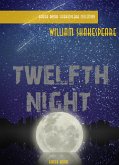For the first time, Shakespeare creates a compelling historical protagonist who speaks naturally in a poetic voice that is distinctively his own. In his earlier works involving kings and emperors, Shakespeare imitated Marlowe's "mighty line" with some--if not complete--success (Richard III was inherently Marlovian, which helped) but in Richard II he at last found a king--a weak man but a considerable poet, with an eye for detail--whom he could animate from the inside, a king more comfortable with the rhetoric of royal pageantry than with the governing his country.
Like Hamlet, Richard and his language dominate the play which he inhabits, and the downside to this is that the play inevitably loses a little of its light and beauty whenever he is not on the stage.
Like Hamlet, Richard and his language dominate the play which he inhabits, and the downside to this is that the play inevitably loses a little of its light and beauty whenever he is not on the stage.









